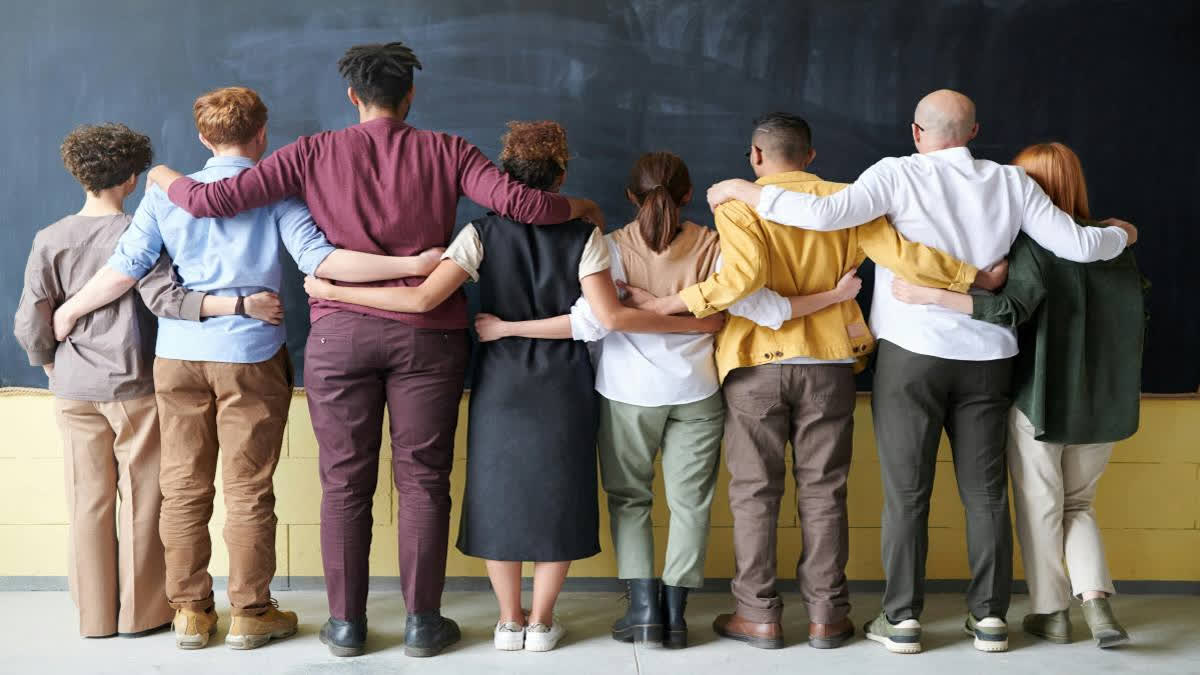Hyderabad: International Hugging Day is observed on January 21 every year as a time to express and receive love from our loved ones. An embrace is a basic gesture that speaks for itself. It has been attributed to empathy, understanding, and compassion in general. Tenderness and love are also associated with it. Hug Day's goal is to encourage everyone to give their friends, family, and loved ones more hugs.
How it started? It is thought that the word "hug" was first used around 450 years ago, and it derives from the Norse root "hugga," which meant "to comfort." National Hugging Day was established in 1986 by Kevin Zaborney. On January 21, 1986, the US town of Clio, Michigan, observed the holiday for the first time.
Zaborney selected January 21 because he observed that this is the period of year, between the winter holidays and New Year's Eve, when individuals typically experience despair. Even though he never really anticipated it would become popular, he also believed that Americans were frequently too ashamed to display affection in public and hoped that National Hugging Day would change that. 2011 saw a rise in the popularity of National Hugging Day in Germany.
The Science Behind Hugs- Humans have two distinct touch systems. One is a myelinated system of rapid touch composed of large A-beta afferents. Because our nerves can rapidly recognize and discern between various skin touches, this is also known as discriminative touch. Slow touch is the second system, involving the newly discovered C-tactile afferents. The affective elements of a hug or caress are processed by the affective touch mediated by these unmyelinated nerve fibres.
It makes sense that physical touch, particularly hugs, is so important for our relationships and mental and emotional health because it is full of meaning and feelings.
Benefits of a Hug- Hugging is beneficial to one's physical and emotional well-being since human relationship depends on physical touch. Hugs have several benefits, including increased immunity and decreased anxiety. A hormone called oxytocin, which is produced in the brain when someone hugs you, is what makes you happy.
- Hugs can reduce Stress and Anxiety- It facilitates Less stress reaction increases our emotional regulation skills.
- Improves our sleep- Embracing someone before going to bed is far more enjoyable than counting sheep. Better sleep is definitely associated with oxytocin's ability to lower anxiety, even if oxytocin doesn't directly affect sleep biology.
- Increases well-being and pleasure- Touch is the "glue" that keeps us connected and promotes our physical and emotional well-being.
- It could help us fight off infections- Touching and hugging can also affect our immune system by controlling chemicals like oxytocin and cortisol.
- Better Cardiovascular Health- Hugs are good for the heart, it turns out, not only in the romantic sense but also for your physical health.
- Less Fighting- One of the greatest qualities of a hug is its ability to keep loving partners apart from conflict.
- Reduces Pain Symptoms- A hug or other healing touch can have the effect of reducing pain. Healing touch recipients reported less postoperative pain and use of narcotic painkillers than cancer patients who received a back massage or no treatment at all.
- Boosts Self-Esteem- A study found that oxytocin can increase self-awareness. resulting in decreased cortisol, or stress hormone, levels. Those who believed they had social support were the ones who responded well, and the oxytocin served to confirm these beliefs.
Also try hugging yourself- Hugging yourself to remind yourself of your inherent value does wonders. It communicates to your subconscious that you are deserving of love, kindness, and compassion. This affirmation practice boosts confidence, fosters a good self-image, and aids in the growth of self-esteem. Hugs are not just for people who are in a relationship! Studies show that giving your pet a hug or cuddle has the same beneficial effects on you both. Ask a friend, lover, or family member to give you a hug if you're feeling low or like you haven't had any touch, so you can experience the positive energy both physically and mentally.



